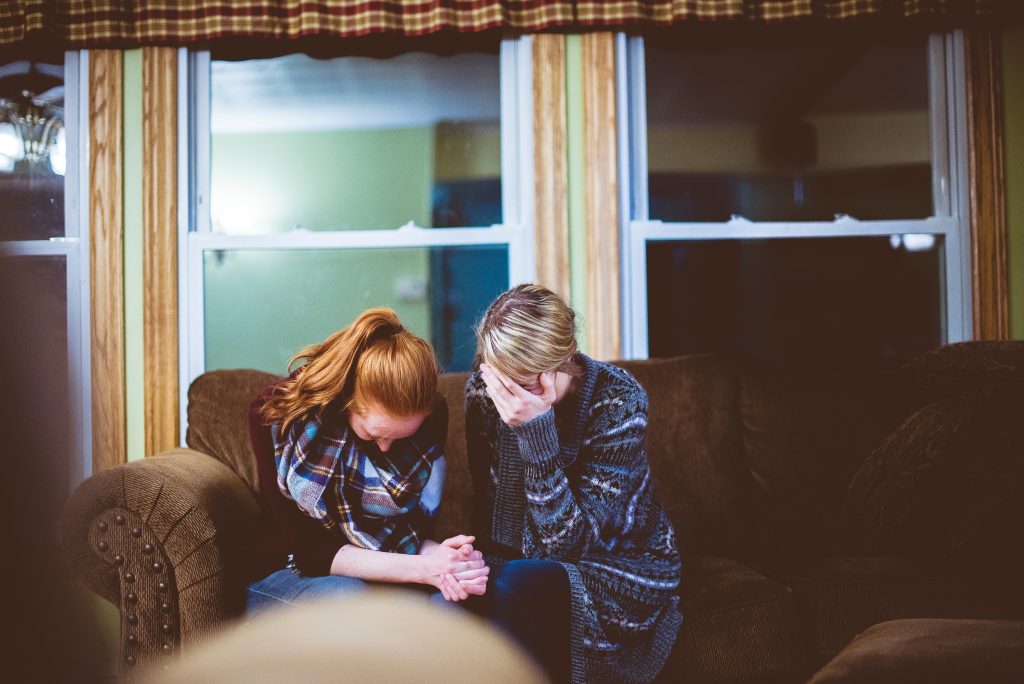Dealing with grief
When you lose someone or something you love, it can feel like the world is ending. You lose the will to do simple things that used to make you happy, and you often can’t find the motivation to take on more challenging tasks. Dealing with grief can be a devastating experience; however, you can’t hole yourself off from the world. You have to face your fears and learn how to cope with this loss.
Whenever we suffer, there are three places our minds can go to that make the situation immediately worse. It is these three emotions and fears are making your grief and depression feel like they are spiraling out of control.
Although you cannot replace your loved one or whatever it is you have lost, such as a beloved pet, a hard-won job or a long-term relationship you can learn how to combat the three triggers of suffering.
Loss

Loss is the first suffering trigger. When you begin focusing on the absence of someone from your life, you start to develop depression from loss. You’re not only thinking about the loss of a close friend or family member, but you’re letting your mind fixate on lost opportunities with them. You’re losing out on making future memories. You’ve lost the opportunity to tell that person how you really feel about them.
It’s easy to let your mind stagnate this way by focusing on the negatives. What if, instead, you thought about all the good times you had with the person you lost? Instead of reeling over all the things you won’t get to do with them anymore, why not try focusing on all the beautiful, joyful experiences you were able to share together? This taps into the mentality of believing that life is happening for you, not to you.
You are in charge of dictating your emotions and mental state. Although some circumstances, like death, are outside of your control, you are capable of taking that negative experience and viewing it in a different way. Everyone has experiences in life that cause him or her to suffer. What matters is how you handle these intense moments of pain – do you use the loss as a jumping point to become a stronger, more resilient person, or do you let your grief consume you?
Less
The second trigger of suffering is believing that you are or have less. As you’re recovering from grief, perhaps you believe that you are less complete without your loved one in your life. Maybe you think life is less worth living because you no longer have a mother, spouse or close friend. When you feed into this mentality, it only prolongs your suffering.
You might also feel that now that someone you love has passed away or gone out of your life,that your days will be “less”: Less joy, less love, less adventure. Realize that these negative thoughts are only temporary. No matter how painful your situation feels right now, your life will go on. You will find happiness again. You will continue growing. In order to do these things, however, you have to accept that you are not less – you are complete entirely on your own. Decide to end your suffering by stopping these limiting thoughts as they arise.

Never

The third trigger of suffering is the most damaging. It’s buying into the idea of “never.” You’ll never get over your feelings of grief and depression. You’ll never meet someone who makes you feel the way your loved one did. You’ll never have a dog as loyal and sweet; you’ll never get another job at the same level. Are these thoughts helping anything? No. They’re making you feel infinitely worse about what’s happening. You’re relinquishing your sense of self to damaging, limiting beliefs. It’s time to take control of your story again. Getting over death isn’t a process that happens overnight, but you have to help yourself by learning to step away from suffering triggers.
Now that you know about the three triggers of suffering, it’s time to learn how to cope with them. Acknowledge what you’re feeling and realize the emotion doesn’t need to be permanent. Then, make the decision to end these negative thoughts. Buying into the notions of loss, less and never will only make it harder to manage your grief.
Choose to end suffering as you’re confronted by it. Decide that you want to feel joyful each day, existing in a beautiful state, instead of living in pain. You’re dealing with something devastating right now, but guess what, you’re going to face more loss in your life. By learning how to deal with the overwhelming feelings of bereavement and depression early on, and trying to turn these damaging experiences into something more positive, you’ll be able to master your emotions in the future.
Important Note
The information and other content provided in this article, or in any linked materials, are not intended and should not be construed as medical advice, nor is the information a substitute for professional medical expertise or treatment. See full disclaimer.